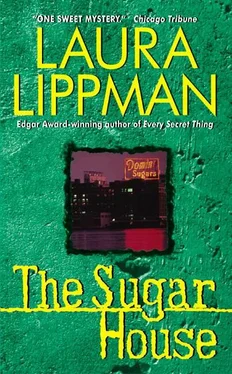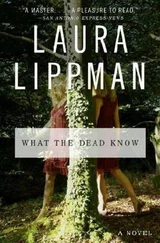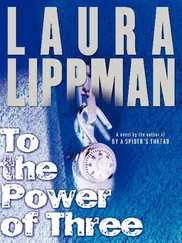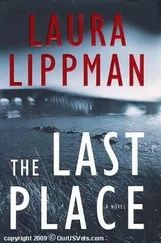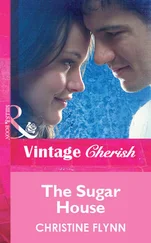A photograph was stapled inside the file. Tess avoided it for as long as she could, but she finally confronted Jane Doe’s death mask. Death by a massive head injury, combined with living on the streets, didn’t bring out the best in a person. Jane Doe’s eyes were closed, her face bruised, at once lumpy and hollow. The tip of her tongue protruded from the corner of her mouth, her farewell to the world that had treated her so badly. The rubber tubing around her neck, fashioned into a bow, was particularly obscene somehow, an ugly posthumous joke. Henry must have lingered over the body, Tess thought, needing to defile it for some reason. Why?
Still, the vestiges of a pretty face remained. Jane Doe had a sensual mouth; a straight, neat nose; and the loveliest brows, thick and natural looking. Working-class Baltimore women tended to overpluck and tweeze, laboring over their eyebrows the way some worked their tiny rowhouse gardens. Ruthie Dembrow, for one, had that overarched, perpetually surprised look. She’d be better off if she misplaced her tweezers for a few months. Not Jane Doe.
Tess handed the report back to the front desk clerk. “I’d like one page copied, if I could. Well, not a page, really-but this photo. Could you do that?”
“It won’t come out very well,” the clerk warned her.
“I know,” Tess said, pushing two quarters toward her. “But I want it anyway.”
Funny, the Polaroid photo reproduced almost too well. Jane Doe’s face was so pale, her features so dark, the rubber tubing at her neck darker still. Tess folded the paper into fourths and hid it between the pages of her datebook.
After the medical examiner’s office, Tess stopped at the police department to pick up the transcript of Henry Dembrow’s confession. No fifty cents a copy here, not as long as Homicide Detective Martin Tull was on the force.
“You want to go over this with me?” he asked, and Tess knew he wanted to go over it with her. Tull did favors in exchange for full disclosure. It wasn’t that he didn’t trust her, quite the opposite. Tull had learned the hard way not to ignore Tess’s instincts.
“We can walk over to that place on Guilford,” he said, his girl-pretty features wistful. “The one with Peet’s Coffee and all those bars.”
“Bars?”
“You know, the salad bar, the soup bar, the sandwich bar, the cookie bar, the juice bar…”
Tess made a face. The morgue hadn’t dented her appetite, but she had other ideas for lunch. “I’d rather falafel.”
“You mean you’d rather have a falafel, don’t you?”
“No, I use falafel as a verb. Let’s go to Cypriana, I’ll falafel, then we can have coffee, after. My sandwich card is filled up, and I’m entitled to a free one.”
“Falafel, it is. Hey, can you gyro, too? Or souvlaki?”
“Don’t be silly,” Tess said. “Obviously, those don’t work as verbs at all.”
Cypriana’s was housed in the old lobby of one of Baltimore ’s many defunct newspapers, the American . Tess had worked down the block at the old Star , now an Inner Harbor parking lot. She wondered if the city’s sole surviving paper, the Beacon-Light , might one day fold, too, if its lobby would become a series of small shops, or an avant-garde art gallery. A world without newspapers seemed increasingly possible to her-and perhaps not that tragic. She had survived the transition. Others would as well.
She ordered the “ultimate,” chicken, falafel, and feta cheese wrapped in a pita, drenched in a sauce whose ingredients were zealously protected. Garlic, however, was clearly part of the mix. Tull opted for a small salad, dry. They found a table next to one of the large windows overlooking Guilford. Tull cast a longing glance across the street, where his Peet’s coffee waited for him. The homicide detective was one of those odd people who didn’t care about food, who considered it nothing more than fuel. He probably wouldn’t bother to eat at all, but his stomach needed some lining for the ten-plus cups of coffee he drank every day.
“So, Henry Dembrow,” he began.
“Henry Dembrow’s victim,” Tess amended. “His sister thinks her brother was killed in prison for a reason.”
“Which lies in the identity of Jane Doe.” Tull chewed on a forkful of greens. “She’s wrong, of course.”
“Agreed, but I can’t see how it would hurt anyone, trying to find out who the girl was.”
“No, it’s a good exercise for you, in fact. The question is, how do you, without access to all the tools and databases we have at the department-”
“Without official access,” Tess said, smiling at him. Unattached, she had never allowed herself to flirt with Tull. Now that she was back with Crow, it seemed perfectly safe to flutter her lashes a little. Tull was fine-boned, an inch or two shorter than she was, with even, perfect features thrown into sharp relief by his acne scars. It was those little scars that made him so attractive, not that Tull ever seemed to notice. “I was married once,” he liked to say, in a tone suggesting it was a childhood communicable disease, like measles or chicken pox. Once you had it, you had it.
“Without access,” he repeated now, in a firm tone. “So, what can you do that we didn’t do?”
“Not give up.”
“Don’t be rude, Tess.”
“I’m not, but it’s true, isn’t it? With Henry’s confession in hand, it had to be less urgent to identify Jane Doe than it was to close your other cases. You’re supposed to catch the killers, not identify their victims.”
“You’d be surprised how a case like this eats at a detective. I was the secondary. The primary on the case, David Canty, took it very much to heart. He did everything possible, even planted a few stories in the Blight , hoping to stir up some leads.”
Tess couldn’t help smiling at this. Newspaper reporters liked to think they used people. They hated to acknowledge how they were used and manipulated. But it was a two-way street, this avenue paved with rationalizations about the public’s right to know and the public good.
“I noticed she had a tattoo, a fresh one, a line at the ankle-” Tess began.
“We checked,” Tull said. “I personally called every goddamn tattoo parlor in the city and the county, to see if anyone remembered a girl like her coming in just before she was killed. No one did. Although if she had a tattoo, she was at least eighteen, or had a fake ID. It’s not legal to tattoo a minor.”
“Could have been a do-it-yourself job.”
Tull shook his head. “Too professional looking.”
“I assume you tried to match her with missing persons reports, too?”
“Yeah. That’s the worst. Families coming in, looking at a dead body to see if it’s their dead body. They’re relieved when it’s not, but they’re also frustrated, because it means all they can do is go home and wait.”
Tess’s sandwich was long gone, but Tull was still picking at his salad. From here, she could see the corner of Baltimore Street, the Block-the Tick-Tock club, the sad little sex shops and peep shows. Once, all runaway girls had ended up here. Now there was so much competition.
“Someone, somewhere must miss her,” Tess said. “Every death has to alter the world in some way, don’t you think?”
Tull gave her a fond smile, the kind Tess hated. “Most people get tougher, the more death they see. But you, you’re still all squishy and sentimental. Next thing I know, you’ll be telling me you’ve found religion, and you’ll start lugging your little piano down to the Block, playing for the passersby. Sister Tess Monaghan, in her black orthopedic shoes, running her own mission of mercy.”
The image made Tess laugh. She knew those women; she had tossed coins in their cups on Friday afternoon, glad someone wanted to save a few souls. “If I find religion, I’ll have to embrace the Muslim faith so both parents can be furious with me.”
Читать дальше
